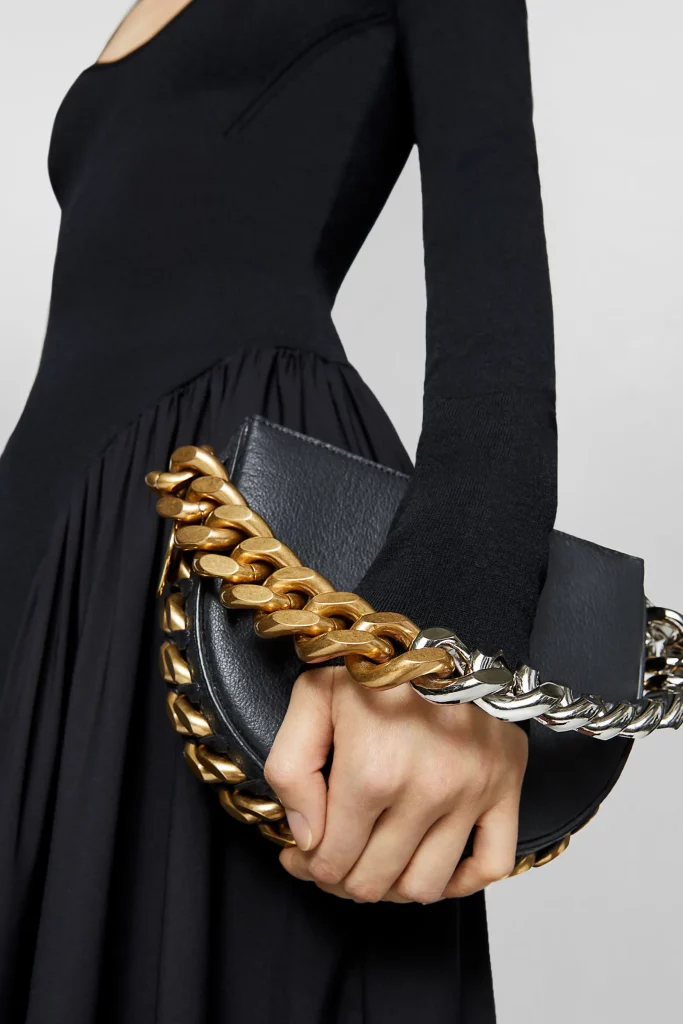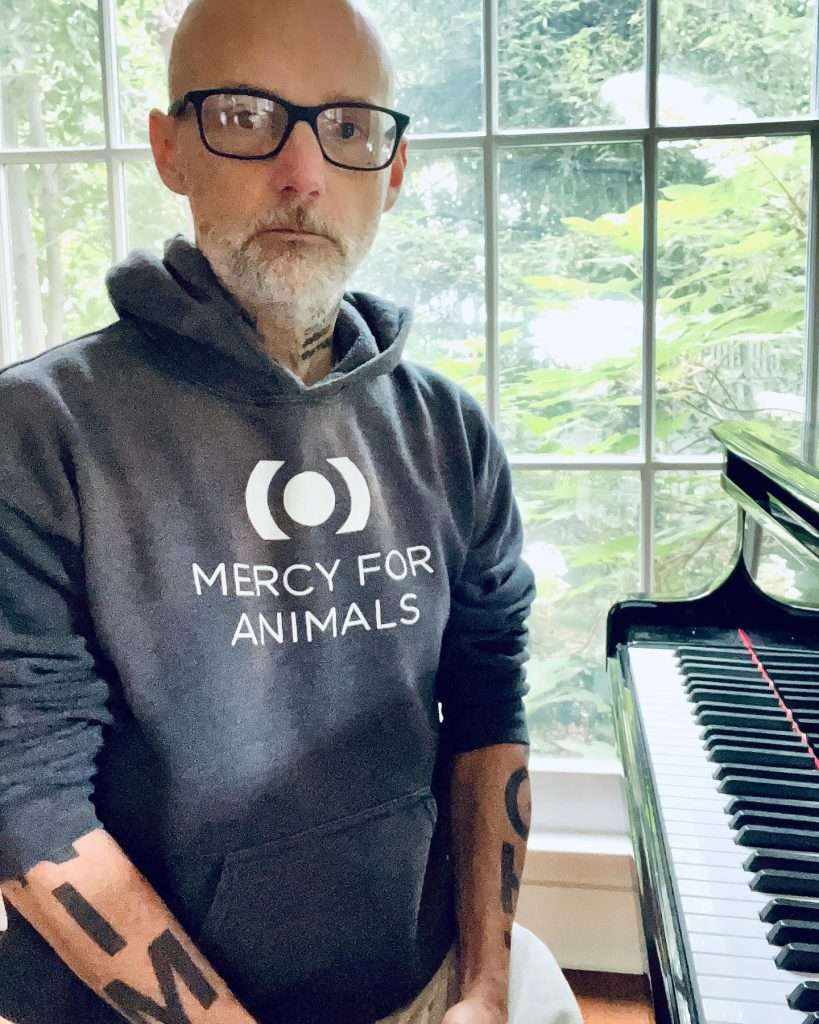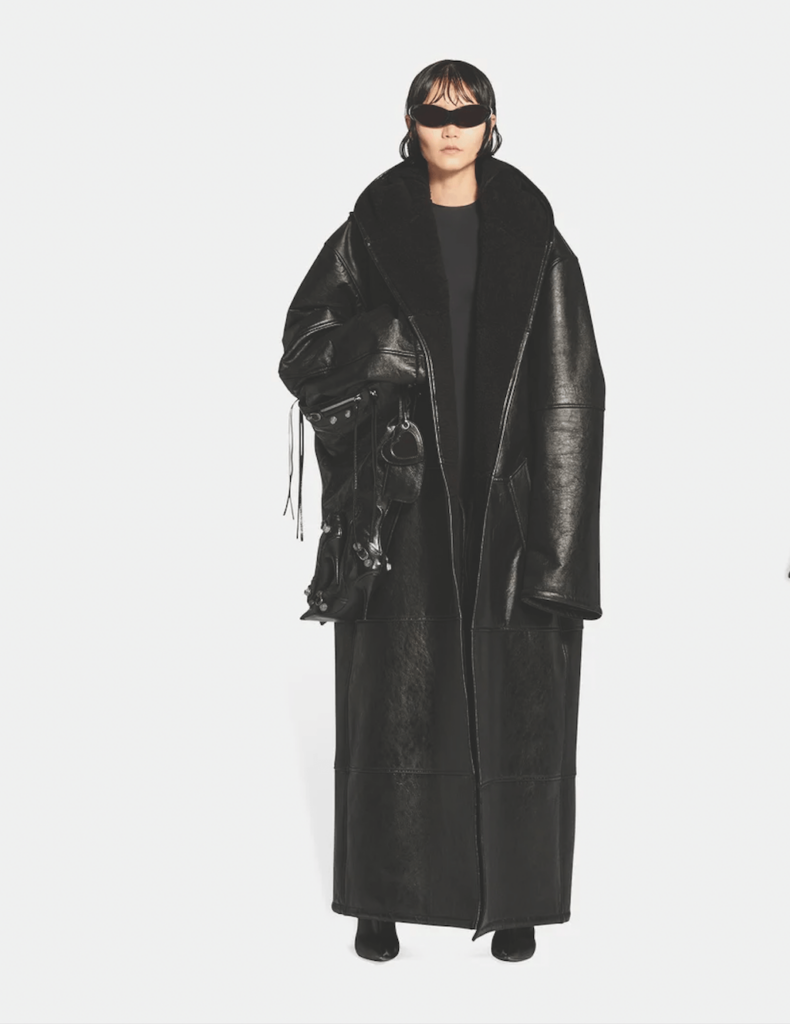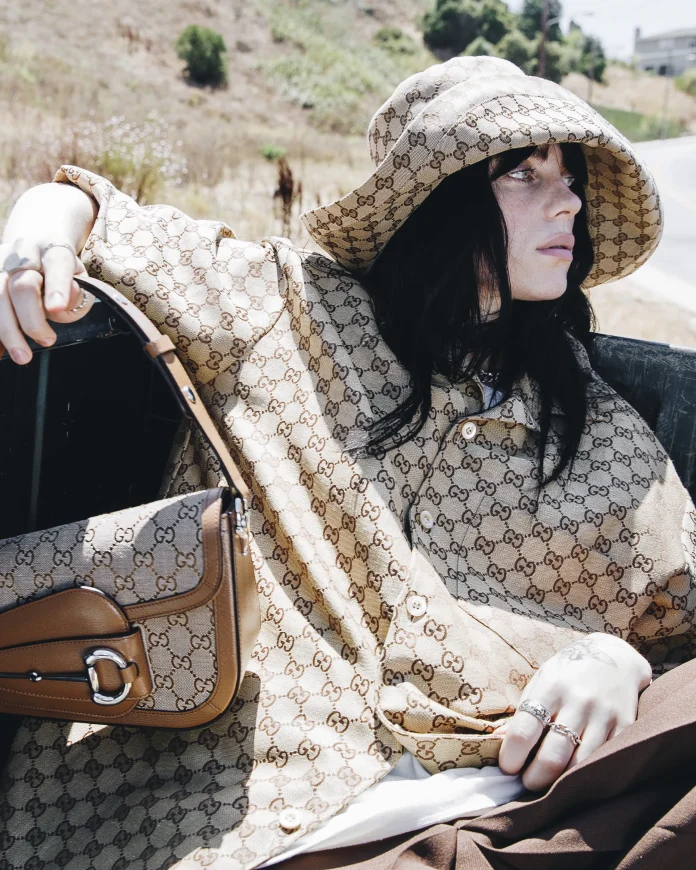Gucci recently debuted its first Demetra leather bag with help from singer Billie Eilish. Will it move the fashion industry toward more ethical materials?
Last month, Gucci made history with the debut of its first vegan leather Horsebit bag. The bag, a retooling of the classic Horsebit first released in 1955, was buoyed by a partnership with friend of the house Billie Eilish.
Eilish’s backing wasn’t just another standard issue celebrity endorsement; it was a testament to her activism ethos. The 21-year-old Grammy and Oscar winning musician is a longtime vegan and climate activist. She’s used her sway to influence brands before. In 2021, Eilish wore a couture Oscar de la Renta gown to the Met Gala on the condition the label permanenty remove fur from its collections. The Gucci Horsebit bag earned Eilish’s stamp of approval because it is made predominantly from Demetra, a non-animal material that comes from a bio-based polyurethane, viscose, and wood pulp. The bag also features hemp and Econyl regenerated nylon.
“Celebrities are powerful influencers who have the ability to motivate and inspire people to purchase items just by what they wear,” Nicole Rawling, co-founder and CEO of the Material Innovation Initiative think tank told Ethos via email. “Whether they offer formal endorsements, or just walk to the grocery store, their clothing, the shoes they wear, and the bags they carry can inspire people to seek out next-gen materials.”
Rawling points to other celebrities who’ve invested in next-gen materials, like Natalie Portman, Leonardo DiCaprio, and John Legend. “By putting their name behind these initiatives, it increases publicity around these next-gen materials, and it encourages more people to invest in them and purchase them.” She says the recent media coverage of Eilish for Gucci’s new vegan Horsebit bag “has been incredible,” showing that endorsements from celebrities are critical in driving interest in and adoption of next-gen materials. “It also illustrates the importance and involvement of this next generation of consumer in next-gen materials becoming mainstream.”

In 2017, Gucci was one of the first major luxury labels to ban fur from its collections. But leather has been a bigger challenge for the industry. There are a few reasons, chiefly that leather is far more widespread than fur. It’s also been historically difficult to replicate with vegan materials. The first iterations were made predominantly from plastic that not only failed to replicate the texture and flexibility of animal leather, but were as equally damaging to the environment. Leather is a co-product of the meat and dairy industries, which accounts for about 20 percent of global greenhouse gas emissions and are leading causes of deforestation and biodiversity loss. Plastic is notoriously harder to qualify because of the industries it’s tied to and what happens to the end product, but the OECD says plastic produces about 4 percent of global emissions. (Its impact on biodiversity, ocean acidification, and human health are so massive they’re almost immeasurable.)
As the fashion indusry grapples with this footprint, the vegan leather landscape has become one of the most interesting areas of fashion innovation in recent years. Companies like Dior and Hugo Boss have turned to agricultural waste from pineapples; there’s also leather from apples, oranges, tea leaves, and wine grapes. BMW has invested in Desserto’s cactus leather. And one of the most promising vegan leather materials comes from fungi. Balenciaga, Hermès, Stella McCartney, and furniture label Ligne Roset are among those using leather made from mycelium — the root structure of mushrooms.
Can vegan leather turn the corner?
Demetra, named after the Greek goddess of harvest, agriculture, and fertility, has been in the works at Gucci for years, initially in its footwear collections. It’s part of Gucci’s overarching sustainability goals that includes upcycled materials and plastic alternatives in collections like its Off the Grid travel bags and accessories.
But vegan leather still has stigmas making widespread adoption difficult. Durability is among the top concerns. Cheaper materials of years past are known to breakdown and peel. Gucci says it has subjected Demetra to rigorous testing, ensuring it meets the same high-quality standards as traditional leather. From abrasion resistance to tensile strength, the material has proven to be on par with, if not superior to, its animal-based counterparts.
Rawling says that while brands are risk averse, they are eager to collaborate on new materials, particularly as the fashion industry is under more scrutiny than ever about its footprint and its use of cheap materials (and cheap labor). “This is why we see the launch of capsule collections,” she says. “It is a low financial risk and a great way to see if there is consumer interest.” Rawling points to Stella McCartney’s recent show during Paris Fashion Week that featured a pop-up market for alternative materials.

“Tory Burch has also jumped in and replaced her nylon tote with Modern Meadow’s Bio-Alloy called the Ella Bio Tote in a wide array of covetable colors,” Rawling says. She also points to Danish luxury label Ganni, which pledged to remove all virgin leather from its collections by the end of this year. Lambskin and leather were among the label’s top-sellers when the label made the announcement. Ganni recently debuted a vegan leather jacket made from bacteria. The label, which just earned the highest B Corp score for a fashion label, has committed to spotlight innovative materials via its Fabrics of the Future Initiative.
Musician and animal rights activist Moby (born Richard Melville Hall), who recently sat on a panel with Rawling and Rebecca Cappelli, the director of Slay, a film about the challenges within the fashion industry, has long directed his activism toward animals raised for food. But he is hopeful about materials like Demetra. “Convincing people to give up meat and dairy is, to state the obvious, incredibly challenging,” he told Ethos.
But, he says people are considerably less attached to leather and other worn animal products. He says asking someone to stop eating a hamburger is not easy “they’ll punch you in the face,” he says. The diet debate is indeed a complicated one. Asking someone to try on a new coat is historically less challenging.
In the nearly four decades since he’s been vegan, Moby says the focus in that time has been on food and its impacts on animals, humans, and the environment. “Up until very recently I hadn’t heard of too many people trying to advance the discussion about animal-based materials,” he says, “which is why I find it so exciting, as it’s so ‘achievable’.”
For Gucci, it also sees an achievable shift. It plans to bring Demetra to its fellow Kering family brands and then potentially to the wider fashion industry.
But there’s still a long way to go. Despite efforts to replace leather, the category is growing.
According to recent data, the global leather market was valued at nearly $420 billion in 2021 and is growing at a CAGR of more than 6 percent. The market is expected to nearly double in size by 2030. Much of that is due to the same factors seeing meat demand increase. As income levels rise in countries like China and India, demand for status foods and materials also rise.

But even with the challenges ahead, Rawling is hopeful about propelling new materials forward. She says it’s important to meet brands where they are and focus on progress not perfection. “We want to inspire brands to see the potential of next-gen materials and how they can be used in exciting and innovative design projects and encourage investors to support this growing industry by showing them the market potential and showcasing innovative material companies.”
It’s a mindset shift also happening in the resale market. Leading secondhand luxury platform Vestiaire Collective recently expanded its ban on fast-fashion items as it advocates for an end to the mass production of cheap clothes. Cheap leather is very much a part of that equation.
Rawling says consumers have the power to support companies in their efforts by purchasing products made from high-quality next-gen materials. “While we think it is important to reduce our consumption of new products, it is also important to show the fashion industry that using next-gen materials will be profitable,” she says.
Celebrities like Eilish certainly help on that front, says Moby. “That’s why I’m so grateful for people like Billie and Joaquin [Phoenix] who are unapologetic in their promotion of veganism in all its forms,” he says. “Anything that moves the needle toward a more compassionate and sustainable status quo is a great thing.”
Related on Ethos:


